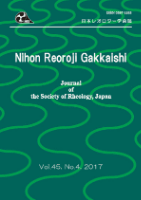
NIHON REOROJI GAKKAISHI
Scope & Guideline
Exploring Innovations in Condensed Matter Physics
Introduction
Aims and Scopes
- Fundamental and Applied Rheology:
The journal covers both fundamental studies of rheological properties and their practical applications in various industries, including food, materials science, and biomedical engineering. - Computational and Experimental Techniques:
Research published often employs a combination of computational models, such as molecular dynamics and numerical simulations, alongside experimental methods to investigate rheological behavior. - Multiscale Modeling:
The journal emphasizes multiscale modeling approaches to understand the complex behaviors of materials, particularly in polymer science and nanofluids. - Interdisciplinary Research:
It encourages interdisciplinary studies that connect rheology with other fields, such as material science, biology, and engineering, to explore innovative applications. - Emerging Technologies and Machine Learning:
Recent papers highlight the incorporation of machine learning and other advanced technologies in rheological research, reflecting a trend towards modernization and efficiency in the field.
Trending and Emerging
- Machine Learning and AI in Rheology:
Recent publications increasingly explore the application of machine learning and artificial intelligence to rheological problems, enhancing predictive capabilities and optimizing experimental designs. - Rheology of Complex Fluids and Soft Matter:
There is a growing emphasis on the study of complex fluids, including emulsions, foams, and gels, particularly in relation to their unique properties and behaviors. - Biological Rheology:
Research exploring the rheological properties of biological fluids and tissues is on the rise, particularly in the context of medical applications and biophysics. - Nanofluids and Advanced Materials:
Emerging studies focus on the behavior of nanofluids and the rheological properties of advanced materials, emphasizing their potential applications in engineering and technology. - Sustainable and Eco-Friendly Rheology:
There is a notable trend towards exploring sustainable materials and processes within rheology, including the use of renewable resources and environmentally friendly practices.
Declining or Waning
- Traditional Polymer Characterization Methods:
There has been a shift away from purely traditional methods of polymer characterization, such as basic viscometry, towards more sophisticated and nuanced approaches that integrate computational modeling and advanced experimental techniques. - Basic Rheological Studies without Application Context:
Papers focusing solely on basic rheological phenomena without applying findings to real-world problems or industrial contexts appear to be decreasing in frequency. - Single-Phase Fluid Studies:
Research concentrating exclusively on single-phase fluids is becoming less common as the field increasingly focuses on complex multi-phase systems that better represent real-world applications. - Low-Impact Studies in Food Rheology:
While food rheology remains a topic of interest, studies that do not explore significant innovations or applications in food science are becoming less prevalent. - Conventional Material Testing Methods:
The reliance on conventional material testing methods without the integration of new technologies or methodologies is declining, as researchers seek more innovative approaches.
Similar Journals

Moscow University Mechanics Bulletin
Empowering Ideas in Mathematics and MechanicsMoscow University Mechanics Bulletin, published by PLEIADES PUBLISHING INC, is a dedicated journal that has been influencing the fields of mechanical engineering and mechanics since its inception. With an ISSN of 0027-1330 and E-ISSN of 1934-8452, this journal serves as a crucial platform for advancing knowledge in mathematics, mechanical engineering, and mechanics of materials. Though currently indexed in the Q4 category across these disciplines, it offers a unique space for researchers and professionals to engage with emerging theories, experimental results, and practical applications. With a converged publication history spanning from 1973 to 1987, and continuing from 2007 to 2024, the journal remains relevant in today’s academic landscape. Though it operates under traditional access models, the journal's global reach aims to connect diverse voices in engineering research. Aspiring researchers and seasoned professionals alike will find valuable insights and a robust discourse that contribute to their respective fields.
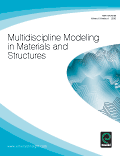
Multidiscipline Modeling in Materials and Structures
Advancing interdisciplinary dialogue in materials and structures.Multidiscipline Modeling in Materials and Structures, published by EMERALD GROUP PUBLISHING LTD, serves as a vital platform at the intersection of diverse fields including materials science, mechanical engineering, and modeling and simulation. Since its inception in 2005, this journal has gained recognition for its commitment to advancing knowledge and innovation within these disciplines, boasting a commendable Q3 categorization across multiple fields as of 2023. With a robust Scopus ranking that places it in the top 60th percentile for both mechanical engineering and mechanics of materials, it stands as a credible source for researchers and practitioners seeking to stay informed on the latest methodologies and applications. The journal emphasizes the importance of collaborative approaches to complex problems in materials and structural analysis, aiming to foster interdisciplinary dialogue and generate impactful research outcomes. Although currently not open access, the journal offers subscription options that ensure access to cutting-edge studies and critical reviews relevant to professionals and students alike. Engaging with this journal not only enriches one’s understanding of the field but also contributes to the ongoing discourse and development of innovative solutions in materials and structural modeling.
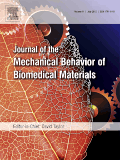
Journal of the Mechanical Behavior of Biomedical Materials
Shaping Tomorrow's Biomedical Solutions with Mechanical ExpertiseJournal of the Mechanical Behavior of Biomedical Materials is a leading academic publication dedicated to the intersection of mechanical engineering and biomedical innovation. Published by ELSEVIER in the Netherlands, this journal, which holds a solid presence within Q2 in Biomaterials and Biomedical Engineering, and Q1 in Mechanics of Materials as of 2023, features high-impact research with a measurable Scopus ranking that places it in the top tier of its fields. With an impressive percentile performance—82nd in Mechanics of Materials and 73rd in Biomedical Engineering—this journal serves as a vital resource for researchers, students, and professionals seeking to enrich their understanding of the mechanical behaviors of biomaterials and their applications. Spanning converged years from 2008 to 2024, it provides access to a wealth of pioneering research that advances the knowledge essential for the development of innovative biomedical applications. Engage with cutting-edge studies and broaden your expertise in the rapidly evolving realms of biomaterials and biomedical engineering through this authoritative publication.
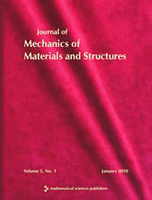
Journal of Mechanics of Materials and Structures
Innovating Insights in Applied Mathematics and Structural Mechanics.Journal of Mechanics of Materials and Structures, published by Mathematical Science Publishers, is a distinguished periodical in the field of Applied Mathematics and Mechanics of Materials. With the ISSN 1559-3959, this journal has been a pivotal platform since its inception in 2006, providing insights and advancements in the mechanics of materials and their structural applications. Operating out of the University of California, Berkeley, this journal not only boasts a respectable standing within its categories, ranking Q4 in Applied Mathematics and Q3 in Mechanics of Materials as of 2023, but it also serves a crucial role in fostering academic discourse among researchers, practitioners, and students alike. Although it does not currently offer open access, its contributions to the respective fields are invaluable, underscoring the relevance and importance of continued research in understanding material behavior and structural integrity. Whether investigating theoretical frameworks or engineering applications, the Journal of Mechanics of Materials and Structures remains an essential resource for anyone dedicated to the advancement of the science of materials and structures.

ASME Journal of Heat and Mass Transfer
Transforming Research into Real-World SolutionsASME Journal of Heat and Mass Transfer, published by the renowned American Society of Mechanical Engineers (ASME), is a pivotal journal in the fields of mechanical engineering and materials science. With its ISSN 2832-8450 and E-ISSN 2832-8469, this journal aims to disseminate high-quality research focused on the principles and applications of heat transfer and mass transfer phenomena. Despite its recent launch, having converged from 2023 to 2024, it has quickly established a significant presence in the academic community, holding respectable rankings within the Scopus database across various categories—including a 66th percentile rank in Mechanical Engineering. The journal endeavors to foster innovation and collaborative research that advance the frontiers of knowledge in thermal sciences, making it an essential resource for researchers, practitioners, and students keen on exploring the challenges and developments in heat and mass transfer technologies. The journal also embraces an open-access model, ensuring that leading research reaches a broader audience and contributes to global knowledge sharing.
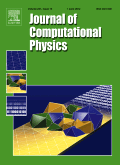
JOURNAL OF COMPUTATIONAL PHYSICS
Charting the Course for Future Discoveries in PhysicsJOURNAL OF COMPUTATIONAL PHYSICS, an esteemed publication from ACADEMIC PRESS INC ELSEVIER SCIENCE, serves as a premier platform in the field of computational physics and its interdisciplinary applications. Since its inception in 1966, the journal has provided invaluable insights and significant advancements in areas such as applied mathematics, numerical analysis, and modeling and simulation. With a robust impact factor and ranking in the top quartile across various related categories, including Q1 in Applied Mathematics and Physics and Astronomy, it is essential reading for researchers and professionals aiming to stay at the forefront of computational techniques and methodologies. Although the journal is not open access, it remains highly regarded with a reputation for rigorous peer review and high-quality publications. As the field continues to evolve, the JOURNAL OF COMPUTATIONAL PHYSICS highlights innovative research that not only advances theoretical constructs but also offers practical applications in scientific and engineering domains. For scholars and students, this journal embodies a critical resource for deepening their understanding and fostering dialogue within the scientific community.
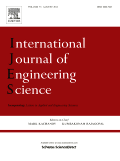
INTERNATIONAL JOURNAL OF ENGINEERING SCIENCE
Driving Excellence in Engineering Science and InnovationInternational Journal of Engineering Science, published by Pergamon-Elsevier Science Ltd in the United Kingdom, stands as a premier platform for pioneering research in the diverse fields of engineering and materials science. Since its inception in 1963, this journal has consistently demonstrated its commitment to advancing academic discourse, maintaining an impressive trajectory that positions it in the Q1 category across multiple engineering disciplines including Mechanical Engineering and Mechanics of Materials as of 2023. With notable Scopus rankings—placing it in the top 5% percentile for Mechanical Engineering and related fields—this journal attracts high-quality, impactful research designed for both industry practitioners and academic scholars. Although it does not currently offer Open Access options, its readership is enriched by comprehensive peer-reviewed articles, fostering a deeper understanding of complex engineering problems and innovative solutions. The International Journal of Engineering Science continues to be an invaluable resource for researchers, professionals, and students committed to pushing the boundaries of knowledge in engineering and materials science.
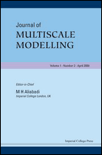
Journal of Multiscale Modelling
Transforming Complex Challenges into Simulated SolutionsWelcome to the Journal of Multiscale Modelling, a reputable publication dedicated to advancing the fields of Modeling and Simulation and Computer Science Applications. Published by World Scientific Publishing Co Pte Ltd in Singapore, this journal serves as a vital resource for researchers, professionals, and students seeking to explore the intricate relationships between various scales of modeling systems. Since its inception in 2009, the journal has established a pivotal role within the academic community, evidenced by its Q4 ranking in both its respective categories and its interests in contributing to the understanding of complex systems through innovative simulation techniques. With an ISSN of 1756-9737 and an E-ISSN of 1756-9745, the journal encourages submissions that push the boundaries of current knowledge and methodologies. Though currently not open access, articles published in this journal are recognized for their scholarly rigor and innovation, aiming to foster collaboration across disciplines and enhance the practical applications of multiscale modeling techniques in various industries. Join us in exploring the vast potentials of multiscale modeling that lie ahead.
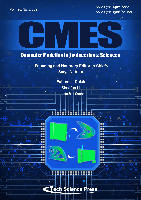
CMES-COMPUTER MODELING IN ENGINEERING & SCIENCES
Pioneering Insights in Software Engineering and ModelingCMES-COMPUTER MODELING IN ENGINEERING & SCIENCES is a premier journal published by Tech Science Press, dedicated to advancing knowledge in the fields of computer science applications, modeling and simulation, and software engineering. With an impressive convergence of research from 2000 to 2024, this journal stands out as a vital resource for researchers, professionals, and students alike, fostering innovation and collaboration in computational methodologies. The journal currently holds a Q3 category ranking in multiple disciplines according to the latest metrics, including Scopus, which reflects its growing significance in the academic community. By providing a platform for high-quality research and open discourse, CMES aims to enhance the understanding of complex systems through effective modeling techniques and computational tools. Despite its current classification under open access, the journal remains a cornerstone for those looking to deepen their expertise in cutting-edge computational engineering and science.

Applications in Engineering Science
Fostering Open Access to Engineering BreakthroughsApplications in Engineering Science is an innovative and highly-regarded open-access journal, published by ELSEVIER in the United Kingdom, focusing on the cross-disciplinary fields of Civil and Structural Engineering, Computational Mechanics, and Mechanical Engineering. Since its inception in 2020, the journal has rapidly established a solid reputation, landing in the Q2 quartile category across multiple engineering disciplines, reflecting its commitment to quality and relevance in the rapidly evolving engineering landscape. With Scopus rankings placing it prominently in the 66th percentile for Computational Mechanics and 58th for Mechanical Engineering, it serves as a vital platform for researchers, professionals, and students alike to share advanced methodologies, innovative applications, and interdisciplinary insights. The journal is committed to fostering open access to cutting-edge research, empowering readers worldwide to stay abreast of significant technological advancements and practical applications in engineering science.